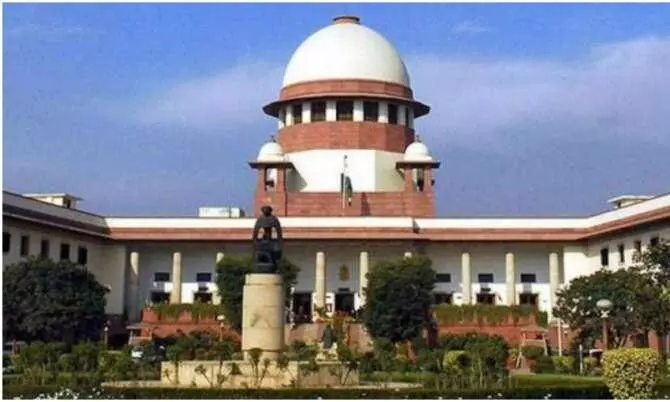
23 names reiterated by SC collegium for appointment as HC judges pending with Union Govt
text_fieldsThe Supreme Court of India, Image credit: PTI
New Delhi: Names of 23 candidates recommended by various high court collegiums since 2018 and reiterated by the Supreme Court collegium were pending with the government at the end of 2021, people aware of the process of appointments to the higher judiciary have said.
At least seven high courts had recommended these names for appointment as high court (HC) judges, PTI reports quoting sources.
According to the report the 23 names were returned by the government with a request to reconsider. But the Supreme Court (SC) collegium reiterated these names on different occasions.
Two of the names - one for appointment as judge of the Karnataka HC and the other for appointment as judge of the Jammu and Kashmir HC -- have been reiterated by the SC collegium to the government twice, they noted.
Both the candidates are advocates. While the name of the candidate from Jammu and Kashmir was recommended in 2018, the name of the candidate from Karnataka was recommended in 2019.
As of December 31, 2021, 23 such names recommended by various HC collegiums since 2018, and later reiterated by the SC collegium after being returned by the Executive, were pending with the government.
In 2021, a total of 120 high court judges were appointed. In 2016, a record 126 HC judges were appointed.
The combined sanctioned strength of the 25 high courts is 1,098 and as of December 1, 2021, they were working with 696 judges - a vacancy of 402.
The government has maintained that filling up vacancies in the high courts is a continuous, integrated and collaborative process between the Executive and the Judiciary. It requires consultation and approval from various constitutional authorities both at the state and the central level.





